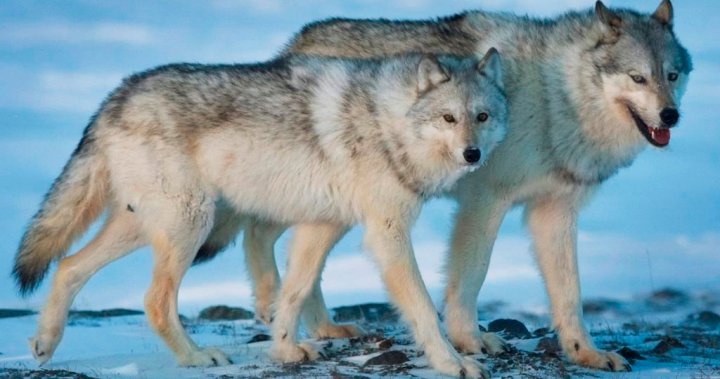The ongoing wolf cull in British Columbia is being criticized for not effectively helping endangered caribou populations. Ian McAllister of Pacific Wild spoke out against the program, stating that it is not wildlife management but wildlife extermination. The government data shows that 248 wolves were shot in the Interior using helicopters and the “judas wolf” method, where one wolf is fitted with a satellite receiver to lead hunters to the rest of the pack. The controversial wolf kill program has been ordered by Victoria in an effort to aid the recovery of critically endangered caribou herds, but critics argue that it is a cruel and misguided approach.
Critics of the wolf cull argue that shooting hundreds of wolves each year will not address the root cause of caribou decline, which is attributed to habitat destruction from clearcut logging. The Ministry of Water, Land and Resource Stewardship, responsible for the program, has not responded to requests for comment on the issue. Pacific Wild reports that more than 2,100 wolves have been killed since the program began in 2015 and is calling for the immediate cancellation of the program. McAllister described the program as “abhorrent” and highlights the devastating impact it has had on wolf populations in the region.
The wolf cull program in British Columbia has been a source of controversy since its inception, with conservationists and environmental organizations condemning it as ineffective and cruel. Critics argue that the program fails to address the main threats to caribou populations, such as habitat destruction, and instead focuses on killing wolves. The use of helicopters and the “judas wolf” method has raised ethical concerns, with many questioning the morality of using these practices to control wolf populations.
The government defends the wolf cull as a necessary measure to help endangered caribou herds recover. However, the effectiveness of the program is being called into question, as the number of wolves killed continues to rise without a significant improvement in caribou populations. Conservationists argue that a more comprehensive approach, focusing on habitat protection and restoration, is needed to truly address the decline of caribou populations. The ongoing conflict between conservationists and the government highlights the complex issues surrounding wildlife management and conservation efforts in the region.
The controversy surrounding the wolf cull program in British Columbia underscores the conflicting perspectives on wildlife management and conservation. While the government argues that the program is essential for the recovery of endangered caribou herds, critics maintain that it is ineffective and inhumane. The debate extends beyond the immediate impact on wolf populations to broader issues such as habitat protection, logging practices, and the overall approach to wildlife management in the region. As the conflict continues, it remains to be seen whether a more sustainable and comprehensive strategy will be adopted to address the decline of caribou populations and protect the diverse wildlife of British Columbia.
In conclusion, the wolf cull program in British Columbia has sparked intense debate and scrutiny from conservationists, environmental organizations, and government officials. The ongoing conflict highlights the challenges of balancing wildlife management with conservation efforts, particularly in the face of declining caribou populations. As the program continues to generate controversy and criticism, the need for a more holistic and sustainable approach to protecting wildlife and their habitats becomes increasingly apparent. Only through collaboration and thoughtful consideration of all factors involved can meaningful progress be made in preserving the rich biodiversity of British Columbia for future generations.













